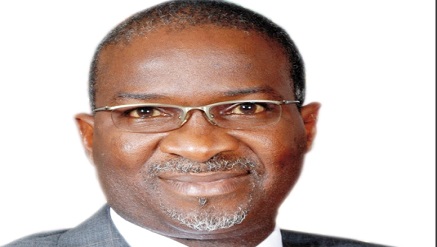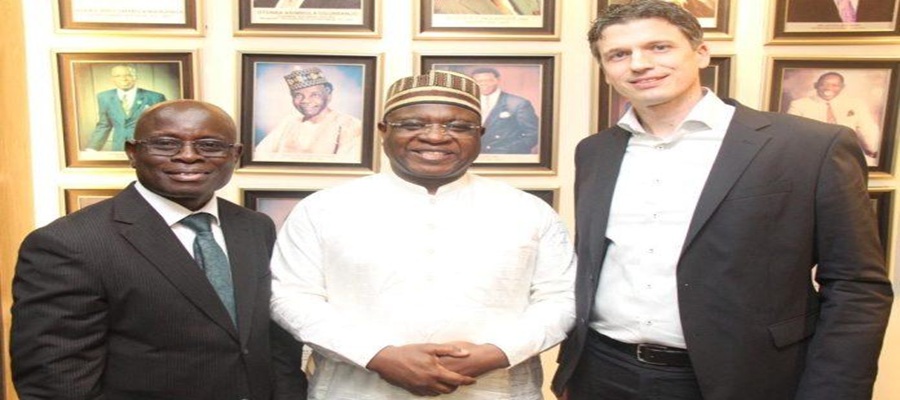News
SERAP Sues Nigerian FG over Pre-Paid Meters

The Socio-Economic Rights and Accountability Project (SERAP) has sued the Federal Government and Babatunde Fashola, Minister of Power, Works and Housing, over their collective failure, refusal and/or negligence to enforce their own directives to electricity distribution companies (DISCOs) to provide free prepaid meters to all Nigerians and end the use of patently illegal, arbitrary, unfair and discriminatory estimated billing across the country.
The application with suit number FHC/L/CS/906/17 was filed last Friday at the Federal High Court Ikoyi. SERAP is arguing that, “By failing and/or neglecting to enforce his directives to DISCOs, Mr Fashola is implicitly promoting the use of unjustifiable estimated billing, and increasing consumer costs. The use of estimated billing is marginalizing Nigerians living in extreme poverty, disproportionately affecting women, children and the elderly, and increasing their vulnerability to discrimination.”
SERAP also argues that, “Mr Fashola’s constitutional and statutory responsibility is not just to give directives to DISCOs to provide free prepaid meters to all Nigerians but also to decisively enforce such directives and end the use of estimated billing. Effective access to electricity includes metering of all consumers. It is the responsibility of the Federal Government which has been assigned to Mr Fashola, and he cannot shy away from it.”
SERAP further argues that, “Unless the reliefs sought are granted, Mr Fashola and the Federal Government will not perform their constitutional and statutory responsibilities to enforce the directives to DISCOs to provide free prepaid meters to all Nigerians. It is in the interest of justice to ensure strict enforcement of directives, deadlines and regulations on provision of free pre-paid meters to all Nigerians, and an end to estimated billing.”
The suit brought pursuant to Order 34 of the Federal High Court Rules and the inherent jurisdiction of the court, wassigned by SERAP deputy director Timothy Adewale. The suit followed the organization’s request to Mr Fashola asking him to “urgently enforce your directives and discharge your ministerial and statutory duty to ensure completion of metering of unmetered customers and total abolition of estimated billing in the country.”
The suit read in part: “Access to regular electricity supply is a prerequisite for satisfying basic human needs, improving living standards, maintaining good human health, alleviating poverty and facilitating sustainable development. It’s unlawful for DISCOs to disconnect electricity supplies on the basis of unpaid estimated bills.”
“Obedience to the rule of law by all citizens but more particularly those who publicly took oath of office to protect and preserve the constitution is a desideratum to good governance and respect for the rule of law. In a democratic society, this is meant to be a norm; it is an apostasy for government to ignore the provisions of the law and the necessary rules and directives made to regulate matters”.
“Electricity provides a safe means of cooking (through electric stoves) and food preservation (refrigeration). Electricity is therefore essential to agriculture and a prerequisite for food security. Electricity can also be employed to realise the human right to access clean water. Electric power operates pumps and sanitation systems so that drinking water is within the safe physical reach of all individuals and accessible by households, educational institutions and workplaces.
“Excessive billing of customers is arbitrary, unfair, unjust, unreasonable and exploitative of millions of socially and economically vulnerable groups. The apparent failure by Mr Fashola to exercise due diligence and effective regulatory oversight on DISCOs to ensure full compliance with the directives to provide free pre-paid meters to Nigerians has denied millions of customers regular and uninterrupted access to electricity.
“For several years after the country’s power sector was privatized, millions of Nigerian households particularly the socially and economically vulnerable sectors of the population continue to complain about outrageous bills for electricity not consumed, and poor power supply from distribution companies.
“Mr Fashola has issued several directives and deadlines by both his office and through the Nigerian Electricity Regulatory Commission for distribution companies to provide free pre-paid meters to all customers, but has failed, refused, and/or neglected to enforce the said directives, and millions of electricity users across the country remain unmetered.
“SERAP has a complaints hotline 080CALLSERAP and that by virtue of this hotline, the organization receives numerous complaints and petitions daily that electricity consumers still get estimated bills and that DISCOs have refused to provide free pre-paid meters to consumers as directed by Mr Fashola.
“SERAP by a letter dated 22nd May, 2017, requested Mr Fashola to urgently enforce his directives to DISCOs to provide free prepaid meters to all Nigerians and end the use of patently illegal estimated billing. But since the receipt of the letter, and up till the filing of this suit, Mr Fashola and the Federal Government have so far failed, refused and/or neglected to enforce the said directives.”
SERAP is seeking therefore seeking an order of the Court granting leave to the Applicant to apply for Judicial Relief and to seek an Order of Mandamus directing and or compelling the 2ndRespondent to enforce his directives to electricity distribution companies to provide free prepaid meters to all Nigerians, and end the use of patently illegal estimated billing.
It also sought for such order or other orders as the Court may deem fit to make in the circumstance.
No date has been fixed for the hearing of the suit.
News
ICPC Charges Ozekhome with Forgery, Corruption Over London Property

Independent Corrupt Practices and Other Related Offences Commission (ICPC) has filed a criminal charge against Chief Mike Ozekhome, SAN, alleging his involvement in a corruption scheme connected to a London property.

Chief Ozekhome
The ICPC filed a three-count charge before the Abuja High Court through its Head of High Profile Prosecution Department, Osuobeni Akponimisingha. The charge, marked FCT/HC/CR/010/26 and dated 16 January, names Ozekhome as the sole defendant in the case.
In the first count, the commission alleged that Ozekhome, aged 68 and residing at No. 53 Nile Street, Maitama, Abuja, received a property described as House 79, Randall Avenue, London NW2 7SX, around August 2021. The ICPC stated that the property was purportedly given to him by one Mr. Shani Tali and that the act amounted to a felony contrary to Section 13 and punishable under Section 24 of the Corrupt Practices and Other Related Offences Act 2000.
In the second count, the senior lawyer was accused of making a false document with a Nigerian passport bearing the name “Mr. Shani Tali” around the same period. The commission alleged that the passport, marked A07535463, was intended to support a fraudulent claim of ownership of the London property. The alleged offence contravenes Section 363 and is punishable under Section 364 of the Penal Code CAP 532 Laws of the Federal Capital Territory (FCT), Abuja, 2006.
The third count alleged that Ozekhome dishonestly used the same passport to support claims over the property despite allegedly knowing the document was false, an offence said to violate Section 366 and punishable under Section 364 of the Penal Code.
Supporting documents attached to the charge include an extra-judicial statement allegedly made by the defendant on 12 January 2026, a judgment referenced as REF/2023/0155 dated 11 September 2025, interim forfeiture proceedings relating to the London house, a data page for “Shani Tali,” a letter dated 18 December 2025, and other expected materials.
The ICPC also listed several individuals expected to testify, including investigators Wakili Musa and Tosin Olayiwola, a representative of the Nigerian Immigration Service, and investigators Ebenezer Nduo and Blessing Monokpo, alongside any additional witnesses the commission may call. As of the time of reporting, the case had not yet been assigned to a judge.
The development follows an earlier investigation by the ICPC sparked by a petition from Olanrewaju Suraj, head of the Human and Environmental Development Agenda (HEDA), citing a judgment from a London property tribunal.
The tribunal’s ruling had linked Ozekhome and others to alleged forgery and fraudulent claims of ownership of the North London building. The petition accused several individuals of conspiring with corrupt Nigerian officials to procure forged identity documents for the purpose of “fraudulently claim[ing] ownership” of the property.
News
NGX Unveils Net-Zero Plan for Greener Capital Market

Nigerian Exchange Limited (NGX) has launched the NGX Net-Zero Programme to guide listed companies toward clear carbon reduction pathways and enhanced climate disclosures aligned with global investor standards.

NGX
The high-level launch engaged chief executives of quoted firms alongside development partners including German Investment Corporation KfW, DEG, and African Foresight Group (AFG), NGX’s implementation partner. Issuers and investors discussed financing decarbonisation, sustainability practices, and attracting climate-aligned capital.
NGX Group Chairman Dr Umaru Kwairanga described the initiative as concrete climate action, commending partners for two years of groundwork. “Today marks leadership and decisive action. Climate change has become a core business imperative, with capital markets mobilising capital and setting standards,” Kwairanga said.
He positioned NGX Net-Zero to support emissions measurement, disclosure, capacity building, and sustainable finance access, urging CEOs to embrace it strategically rather than as compliance. Kwairanga reaffirmed NGX’s goal to make Nigeria’s capital market Africa’s green finance hub.
Group CEO Temi Popoola called climate action a business imperative, noting sustainability-embedded firms attract capital, manage risks, and stay competitive. DEG Management Board Member Monika Beck highlighted partnerships scaling impactful, commercially viable climate solutions.
The event closed with a ceremonial gong marking the programme launch and send-off for outgoing DEG Regional Director Bernd Telemann.
News
Nigeria Off EU High-Risk Money Laundering List in Major Financial Win

Nigerian Financial Intelligence Unit (NFIU) has hailed Nigeria’s removal from the European Union’s list of high-risk third countries for Anti-Money Laundering and Countering the Financing of Terrorism (AML/CFT) as a landmark achievement endorsing the nation’s reform efforts.

Nigerian Financial Intelligence Unit (NFIU)
NFIU CEO Hafsat Abubakar Bakari said the delisting, contained in European Commission Delegated Regulation (EU) C (2025) 8460 adopted December 4, 2025 and effective January 29, 2026, affirms sustained AML/CFT and Counter Proliferation Financing (CPF) reforms.
The move follows Nigeria’s exit from the FATF Jurisdictions under Increased Monitoring after addressing strategic deficiencies, alongside Burkina Faso, Mali, Mozambique, South Africa and Tanzania.
Bakari noted the European Commission recognised Nigeria’s strengthened AML/CFT effectiveness, closed technical gaps, and fulfilled FATF Action Plan commitments leading to grey list removal in June and October 2025.
The delisting eliminates enhanced due diligence requirements for EU financial transactions, easing compliance, boosting cross-border flows, and enhancing Nigeria’s appeal for European trade, investment and partnerships.
The NFIU attributed success to President Bola Ahmed Tinubu’s political will and collaboration among National Assembly, law enforcement, regulators, judiciary, private sector and development partners.
The agency reaffirmed commitment to ongoing FATF, GIABA, EU engagement and domestic framework resilience to maintain international confidence in Nigeria’s financial system.

 E-Financial3 days ago
E-Financial3 days agoSEC Hikes Minimum Capital Requirements for Market Operators After a Decade

 Telecom3 days ago
Telecom3 days agoStudy Shows Blocks in Telegram are Pushing the Underground Out

 News3 days ago
News3 days agoNigeria Off EU High-Risk Money Laundering List in Major Financial Win

 News3 days ago
News3 days agoNGX Unveils Net-Zero Plan for Greener Capital Market

 Telecom3 days ago
Telecom3 days agoGalaxy Backbone Marks Two Decades of Powering Nigeria’s Digital Evolution

 Telecom3 days ago
Telecom3 days agoVodacom Crowned Africa’s Top Employer 3rd Year Running on Innovation, Ethical AI

 Telecom3 days ago
Telecom3 days agoGalaxy Backbone Marks 20 Years, Tops FG Website Scorecard

 E-Financial14 hours ago
E-Financial14 hours agoHere Are Nigerian Banks That Have Secured Their Licences















